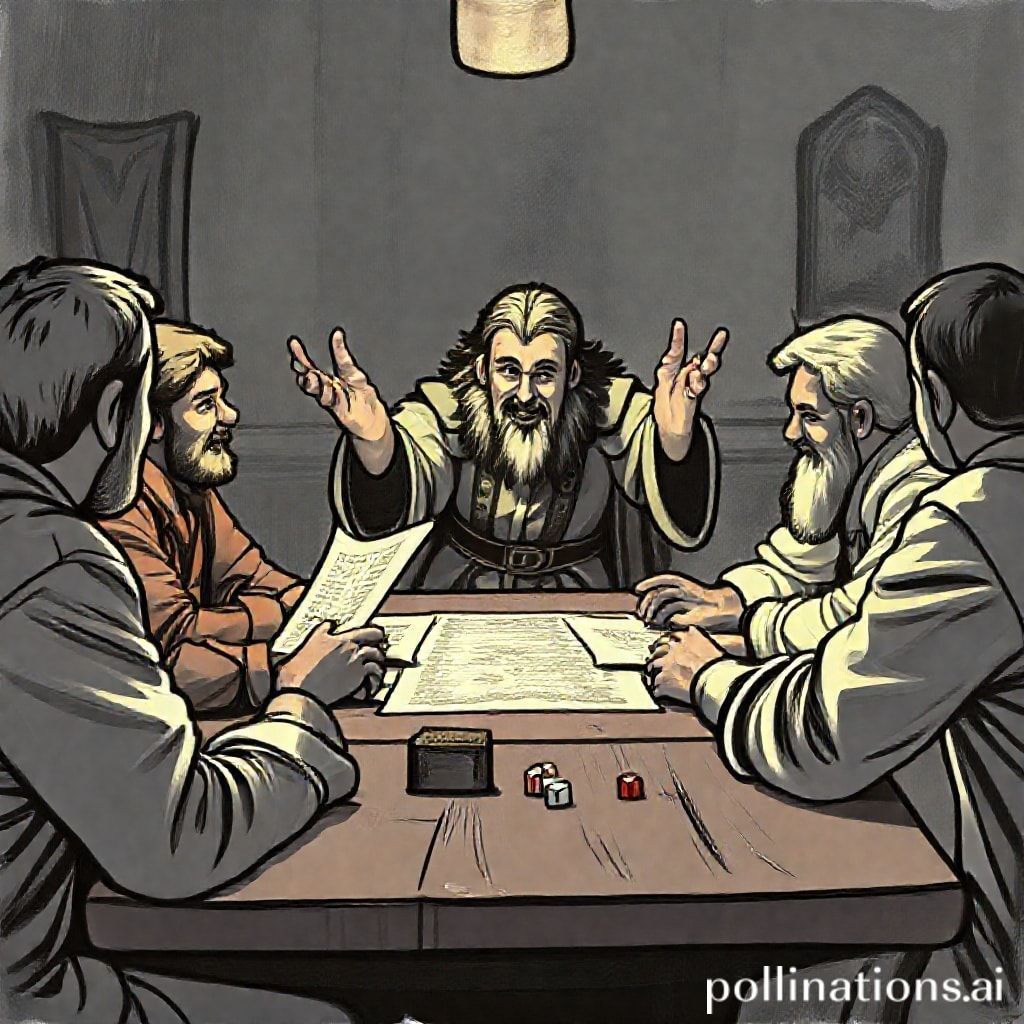
So, You Want to Be a Dungeon Master?
Paul Stead
So, You Want to Be a Dungeon Master? A Beginner’s Guide to Running Your First D&D Game
Stepping behind the screen as a Dungeon Master (DM) for the first time can feel intimidating. You are suddenly the storyteller, referee, actor, and world-builder all rolled into one.
I remember my first time DMing, I had 200-pages prepared of lore and campaign notes for how each session will go and read the PBH and the DMG cover to cover. I felt confident stepping behind the screen and running the game till their first encounter. I was fumbling around, looking at my campaign notes which the players had rip to shreds and tossed in the nearest river by doing something I didn’t expect them to do.
I learned a lot from that session and still use those lessons now as I DM for my table, I’m by far not the best DM. However, I would like to give some of these lessons to new DMs like yourself in the hopes it helps you find your way through your first session and love DMing for your table like I do.
Here is the first lesson I learned, you don’t need to know everything to run a great game. Your job isn’t perfection it’s making sure everyone at the table has fun. That is why we all play and have fallen in love with Dungeons & Dragons. Cause it’s fun to spend time with people we care about and tell a story.
Here are some things I wish I knew while I was preparing for my first session which I hope will help you.

-
Start Small
You don’t need a sprawling world or a 200-page campaign book to begin. Pick a short adventure (a one-shot) or a starter module. Wizards of the Coast has free ones online, and plenty of fan-made adventures exist too. Running a smaller story gives you a chance to learn the basics without getting lost in the details.
Don’t focus on a complex story or worldbuilding, focus on understanding how you wish to DM. This only comes with playing and seeing what works. However, if you are too focused on keeping your multi-dimensional adventure with 200-page campaign book (that’s what I wrote) clear, you won’t learn your unique style of DMing.
Think of it like learning to cook, you start with a simple recipe before hosting a heroes feast (Unless you are a Bard).
-
Know the Rules… Lightly
You don’t have to memorize the Player’s Handbook cover to cover. Focus on the core loop of play:
- You describe the Scene.
- Players describe how they react.
- You determine outcome (if the outcome is unclear, then ask for a roll).
Most of playing consists of this loop. If other rules come up, you can look them up as and when needed. I have been my tables forever DM for nearly a decade and I don’t know every rule, it’s okay to take a moment and look up something if you need. Just keep the main rules you will need (Combat rules, Exploration, Healing, etc.) on a DM screen or a notepad so you have them ready to look up.
-
Prepare Just Enough
Prep is important, but over-preparing can leave you feeling stuck when players go off-script (and they will, almost immediately). I used to focus on preparing for everything and it would leave me exhausted, most of what I had written never used cause it was too specific to be re-used somewhere later. Instead, focus on three things:
- The Goal – What are the players trying to achieve in the session?
- The Obstacles – A monster, puzzle, or NPC that stands in their way.
- The Reward – Treasure, information, or a story moment.
If you have those three things, you’re prepared to improve with what your players are doing. This is the best way to start while you work out what works for you. Everyone preps differently and some people like to have more written and other like to improvise more with the vibe of their players. Neither is wrong but start small with your prep, so you don’t overwhelm yourself and adjust as you need.
-
Say Yes More Often Than No
Your players will surprise you. They’ll try things you didn’t expect, like bribing the goblins instead of fighting them, adopting said goblins into their chronomancy cult (I really didn’t see that coming). Don’t shut that down! Lean into their creativity. The best D&D stories come from moments where the DM said “Yes, and…” instead of “No.” Going with the flow or the vibe of the table can lead to great story moments and show your players that their creativity is welcome (Rule of cool RULES!).
-
Don’t Fear Mistakes
Every DM makes mistakes, regardless of experience. You’ll misread a rule, forget a monster ability, overwhelm a combat encounter or give a player way too much loot. If everyone’s laughing, invested, and having a good time, then you’re doing your job perfectly. Rules can be fixed later, the fun in the moment matters most.
-
Use Tools That Make Your Life Easier
You don’t need a fancy setup. A notebook, a few dice, and a printed character sheet are all you need. But here are a few beginner-friendly tools:
- DM Screen – Great for hiding notes, rules and dice rolls.
- Condition & Spell Cards – Keep effects handy.
- Free Online Tools – Roll20, D&D Beyond, or simple encounter builders.
Use whatever helps you, but don’t feel pressured to buy everything at once. Just look for what you need, you will build your collection when you are ready too.
-
Focus on Fun
This is the most important thing I learned. At the end of the day, your players won’t remember the rule you got wrong or the stat block you skipped. They’ll remember how they felt in the story you told together. Telling the story of the time they looted the vault of a trading house by distracting all the guards with their slapstick comedy routine, the time they got the last hit on the BBEG or when they liberated a town from a curse. Not when you read a rule wrong.
Everyone is there to enjoy themselves, including you, so that is the main goal. Sometimes we can get to focused on the things we are missing or mistakes we have made and forget we are spending time with friends and family. If everyone is laughing, joining in and sometimes sheading the occasional tear with each other. Then you are taking part in the key things that personally, made me fall in love with Dungeons & Dragons. If your players walk away saying, “That was fun!” then to your table, you are the best DM in the world.

Final Thoughts
Being a DM is less about performing perfectly and more about guiding play. You’re not the players’ enemy, nor are you their boss. You’re their collaborator. If you start small, focus on fun, and allow yourself room to learn, you will be amazed at the stories that unfold.
I wish you the best of luck and hope you have as much fun DMing for your table as I do. We have resources in our store if you need any DM tools. So go ahead, roll some dice, spin some tales, and welcome to the best seat at the table.
Written by Adam Wales
